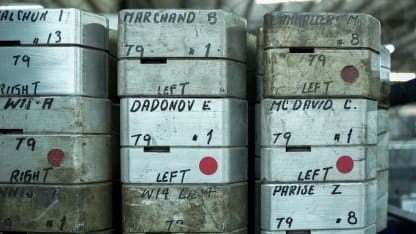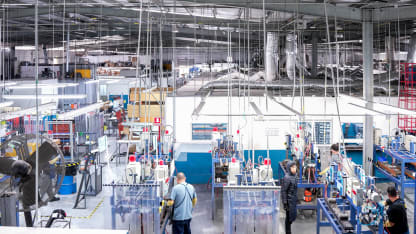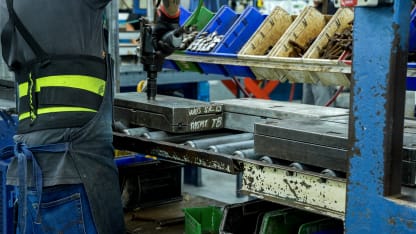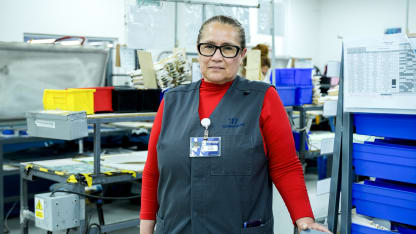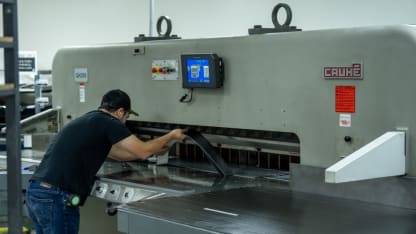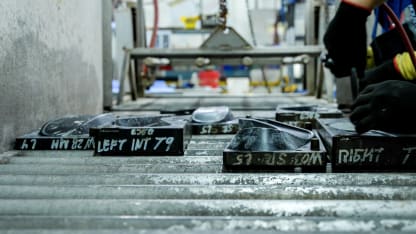Jared Quartuccio, Warrior’s pro services manager, said visitors often are surprised to learn that the majority of production steps are done by hand, not automated. He estimated that 45 to 50 people touch every pro-level stick with their hands, partially because curve preferences vary from one player to the next.
“People thought there was a machine where you type in specs, push a button and hockey stick comes out,” Quartuccio said. “It is a very, very intense process.”
Quartuccio said sticks are comprised of “aerospace-grade” carbon fiber, bonded by resin, because they must bear substantial force without being bulky. A typical NHL player may begin a season with 24 sticks, then order bundles of 12 as the stock dwindles, Quartuccio said.
It’s common that a player will go through 100 sticks during a single season. (NHL clubs pick up the bill.) Quartuccio estimated that Stars center Matt Duchene required around 145 or 150 last season. That’s a big number, but nowhere close to the single-season Warrior record. That distinction belongs to Ilya Kovalchuk.
He once needed 240.
240!
About 20 actually broke, Quartuccio said. The others were swapped out at a dizzying pace, with new sticks requested for every morning skate and game.
Kovalchuk is an extreme example of a popular trend among NHL players.
“They feel like if the stick isn’t 100 percent to what they need it to be, that can twist their confidence a little bit, which lowers their level of play,” Quartuccio said. “We want to make sure the sticks are consistent and to the level they require all the time, so it’s not something they have to worry about on the ice.”
